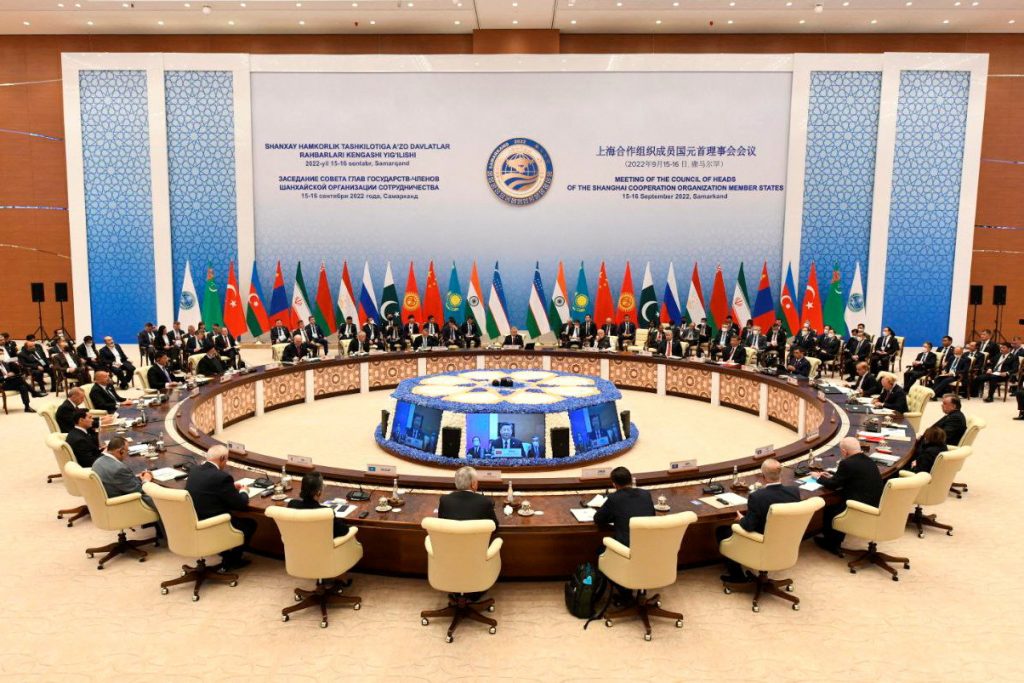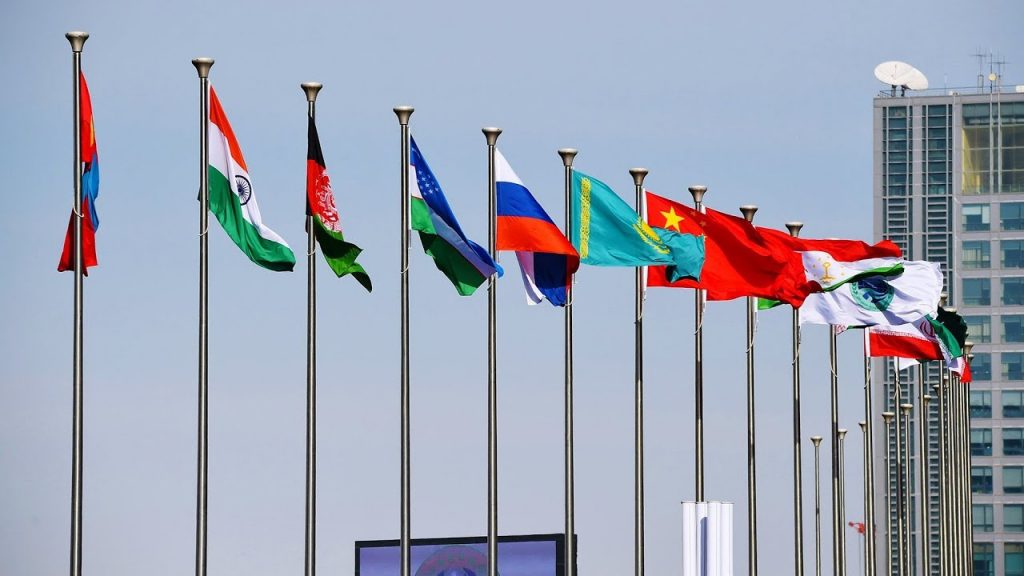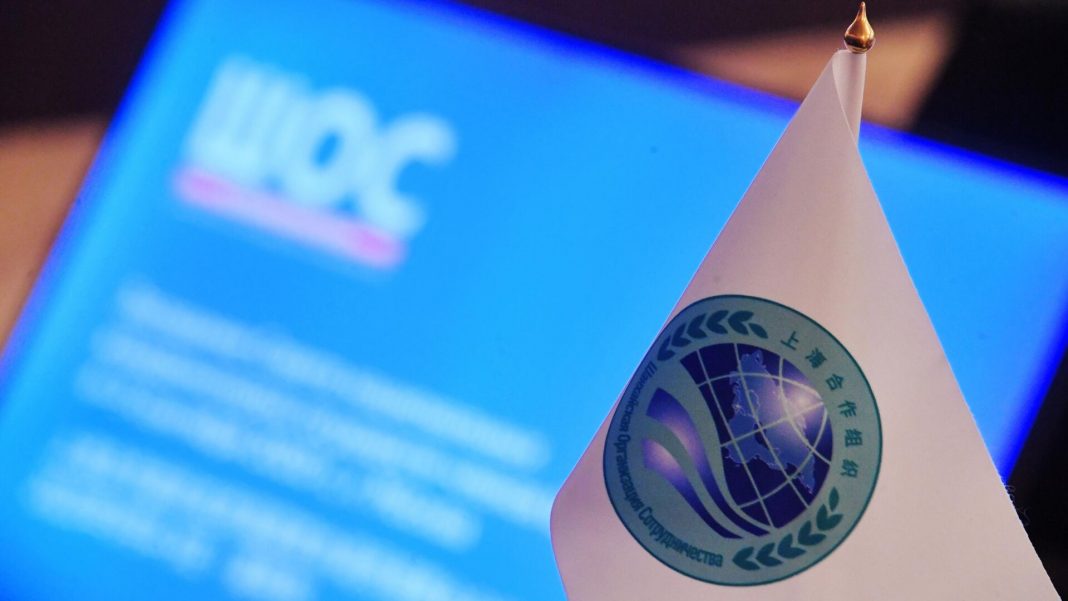Today, the Shanghai Cooperation Organization has become a club of states openly challenging the monopolar world. Currently, the total territory of the SCO countries is more than 35 million km², that is, 65% of the Eurasia region. Their total population is approximately equal to half of the world’s population (exceeding 3.5 billion). China and India, which are members of the SCO, hold the positions of the second and third economies in the world. Russia, China, India and Iran are members of the “space club”. At the same time, the organisation demonstrates a tendency to expand by entering new members (UAE, Egypt, Belarus and others).
It is also important to note that the SCO is not a military bloc, which in the future can be used in a diplomatic confrontation with NATO: in fact, most of the member states of the “anti-Western coalition” demonstrate an attempt to create a peaceful organisation that focuses on economic, humanitarian and cultural aspects, and not in service and expansion to the borders of ideologically enemy states. An example of the development of such a scenario is the appeal of the Minister of Foreign Affairs of the Russian Federation, Sergey Lavrov, to the leaders of the countries of the Shanghai Cooperation Organisation to create their own sports association. According to him, this will simultaneously expand the functionality of the SCO, as well as “cope with the almost monopoly influence of the West in sports.”
In this case, it is worth noting that the original functionality of the SCO was based on the need to clarify demarcation issues between China and its neighbours. Later, it significantly expanded and modified during its 22 years of existence. In addition to the entry of new members into the organisation, the SCO strategy has also changed significantly, which requires special attention against the backdrop of China’s strengthening position in the geopolitical arena.
The activation of the Shanghai Cooperation Organization began in 2017 when India and Pakistan (which have been observer countries since 2005) became full members. In 2022, Iran officially completed the procedure for joining the SCO. At the upcoming summit, he will be presented for the first time as a full-fledged member of the organisation.
The predicted expansion of the SCO brings the SCO to a new level. This does not limit only to including Iran but also to welcoming a group of Arab states, as well as (which is especially important) Myanmar. A serious step towards strengthening the position of the organisation was the entry of Saudi Arabia into it, whose cabinet, on March 29, 2023, signed a document on joining the SCO as a dialogue partner and considering many projects that will allow coordinating the energy policy of Saudi Arabia and China.
Saudi Arabia’s accession to the SCO was the logical conclusion of Beijing’s peacekeeping mission in the Middle East, as a result of which Riyadh restored diplomatic relations with Tehran, which were severed back in 2016. Notably, the final round of negotiations on this issue took place on March 10, 2023, the day Xi Jinping was re-elected to the post of Chinese President for a third term.
Moreover, in addition to strengthening its position in the Eurasian region, by expanding the pro-Chinese axis (including with the help of the SCO, BRICS and other organisations), Beijing has had a significant impact on strengthening the Middle East, where a conservative and increasingly independent of external factors strategy of regional interaction. In this case, Syria’s return to the Arab League (whose participation was suspended in 2011) is very indicative. In essence, Beijing is offering the Middle Eastern states a new format of diplomacy and interaction. As a result, the Arab states will play the role of full members in the geopolitical arena and not be content with the title of satellites of Washington or Moscow.

It is important to note that not only an anti-American policy is being built in the Middle East, but also an anti-Russian one. China, in turn, is demonstrating its readiness for entirely different game rules, which neither Moscow nor Washington can afford.
Considering the process of expansion of the SCO and the intensification of interaction between the organisation’s members, three main goals can be distinguished, the implementation of which will be noticeable shortly. First, we should expect a review of specific measures that help improve the security of energy infrastructure and logistics from the Persian Gulf to the Far East. This inevitably implies the development of redundant overland export routes so that supplies do not get stuck at critical maritime points such as the Straits of Malacca and the Straits of Hormuz. One possible aspect of the strategy is an investment in marine and land systems, which will eventually be transformed into transport arteries linking the Persian Gulf and Central Asia with the markets of the Far East.
Notably, the key topic of the previous SCO summit, which took place on September 15-16, 2022, was the discussion of collective strategies to improve oil and gas logistics in Central Asia and the Middle East. The Nord Stream and Nord Stream 2 gas pipelines were blown up a few days after the summit. This event was another demonstration for the SCO member states of diversifying the risks associated with energy infrastructure and logistics.
Secondly, we should expect the strengthening of the role of the SCO as an international institution that can promote the priorities of its member countries in world markets dominated by the interests of the Organization for Economic Cooperation and Development (OSED), a direct ideological opponent of the SCO. This strategy involves the creation of mechanisms to reduce dependence on the dollar and limit the ability to use it as a weapon and also helps to reduce the politicisation of Western financial institutions. The sale of fossil fuels using alternative currencies, particularly the Chinese yuan, is one of the mechanisms the PRC implements in its own markets.
It is worth noting that, over the past ten years, Russia has been negotiating to join the OECD. Still, after a full-scale invasion of Ukraine, the organisation severed relations with Moscow. Moreover, against the background of the introduction of harsh economic sanctions against Russia, the issue of reducing dependence on the dollar has intensified significantly. Accordingly, it has become one of the key issues within the SCO.
Using the example of Russia (and earlier Iran), members of the conditional “anti-Western coalition” studied the tools of economic pressure from the West, which can be applied in the event of a further deterioration in relations or the emergence of new hot spots (for example, an escalation of relations between China and Taiwan). In this case, strengthening economic security is no less critical for the organisation’s members than energy security.
Thirdly, the SCO member states are already actively working to facilitate bilateral trade and economic growth, which contributes to the development of national economies and increases their sustainability.

Based on the above principles, it becomes clear that the Shanghai Cooperation Organization is becoming an increasingly influential and authoritative tool in the Hands of Beijing, allowing it to expand its influence using Western foreign policy approaches. We are witnessing a well-thought-out strategy of Beijing designed for the coming decades. China is gradually returning to the historical concept. The Western world is considered a barbarian territory, incomparable regarding the richness of culture and the depth of scientific thought with the East. Hence the regular attempts by the conditional “anti-Western bloc” to accuse the West of distorting democratic principles and violating the entire international architecture created after World War II (China has repeatedly stated the importance of preserving the United Nations and strict adherence to its charter).
In this case, it is worth paying attention to the statements of the SCO Secretary-General Zhang Ming, who noted that “the countries of the Shanghai Cooperation Organization (SCO) are ready to create favourable conditions for resolving the Ukrainian crisis”: “The SCO member countries unite based on common values and share the same or close positions on many important international and regional issues”. Moreover, one of the fundamental principles of the SCO is cooperation in preventing international conflicts and their peaceful settlement.
In this context, it is worth noting that, according to Ascolta, during the meeting of the heads of the foreign ministries of the SCO member states, which took place on May 4-5, special attention was paid to the issue of putting forward an initiative to resolve the situation in Ukraine, which should be announced in June, at the summit leaders of the SCO member states (scheduled for June 24-25 in New Delhi).
According to unconfirmed information, one of the possible scenarios for the development of events may be a return to the previously discussed option with the organisation of a joint UN-SCO peacekeeping mission, which may also be joined by individual CSTO members (for example, Belarus and Kazakhstan). According to another version, for the same purpose, Belarus is preparing in an accelerated format to join the SCO, which may take place already at the upcoming summit of the organisation.
Notably, on May 8, information appeared about the presence of the leaders of Belarus, Kazakhstan, Armenia, Kyrgyzstan, Tajikistan and Uzbekistan in Moscow during the May 9 parade. It is important to note that the delegation will leave for Beijing on May 16 to meet with Xi Jinping.
As for Russia and Moscow’s positions in the process of expanding the Shanghai Cooperation Organization, it begins to play an ever less critical role, yielding its positions to China. In any case, Russia cannot claim any leadership in the SCO – its economic weight is too low to act as a unifier. That is why Russia will use the expansion of the SCO only for propaganda purposes – “Our regiment has arrived.” But it will gradually become clear that the original task of uniting the countries of the Central Asian region around the Moscow-Beijing axis has become obsolete. Russia itself is becoming one of the elements of the pan-Chinese system, and the main task of the SCO in the near future will be to search for models to avoid confrontation between China and India. (and at the same time between India and Pakistan). Under these conditions, Russia within the SCO turns into an extra.


